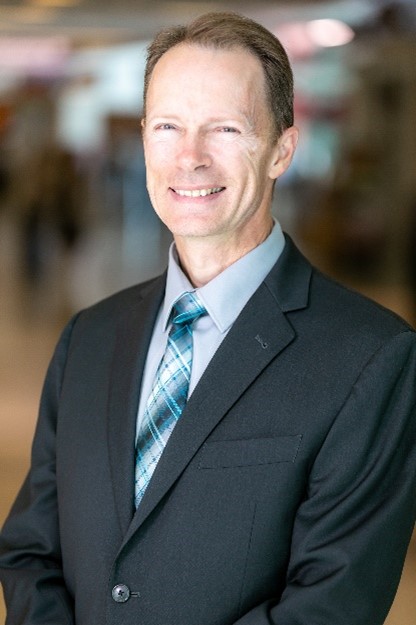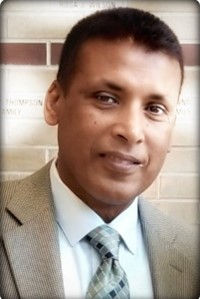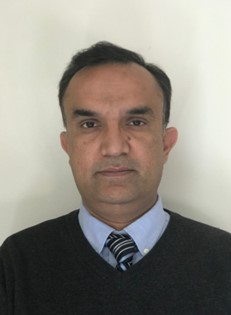The eighth annual Professional Engineers Day was celebrated on August 2, however, with the new school year underway, the City of Philadelphia Department of Aviation knows that professional development and potential careers are on the minds of many students. The airports' engineers want to share their experiences with high school and college students to help them better understand the path to becoming a professional engineer (PE).
According to the National Society of Professional Engineers, to become a PE, you must:
- Complete a four-year college degree at an Accreditation Board for Engineering and Technology (ABET) accredited university.
- Pass two intensive competency exams and earn a license from their state's licensure board.
- Work under a PE for at least four years.
- Continually maintain and improve their skills throughout their careers to retain their licenses.
A few of the Department of Aviation’s PEs shared their experiences and advice for students:
What is your favorite part of being an engineer?

Api Appulingam, PE, AAE, Deputy Director of Aviation, Capital Development (obtained PE license in Texas in 2009): My favorite part about being an engineer is that I get to take an idea and bring it to life through planning, design, and construction.
Thomas Joseph, PE, PMP, CM, Airport Engineering Assistant Manager (obtained PE license in Pennsylvania in 2000): As an engineer, finding a solution for a process or situation or how to improve the efficiency of a given process is my favorite part.
Imad Haq, PE, LEED AP, Airport Engineering Manager (obtained PE license in Connecticut in 2010): I believe – irrespective of the engineering discipline you select – problem-solving remains a constant, and I am particularly enthusiastic about delving into the technical intricacies of these challenges.
Allan F. Moore, Jr., PE, CM, Deputy Director of Aviation, Facilities (obtained PE license in Pennsylvania in 1993): I enjoy being a part of the process that designs and builds the infrastructure which improves our communities, our accessibility to the world around us, and our lives in general.
Has becoming an engineer changed the way you look at the world? If so, how?
Appulingam: I have had the opportunity to work on projects in other countries and it’s shown me that we are all striving to build a better world. Each community finds their own unique solutions but there’s often a common denominator. And I have learned to practice inclusivity, build emotional connections, communicate often, adapt, and collaborate.

Joseph: Engineering is a diverse field. Engineers analyze everything with critical eye and apply their scientific knowledge and skill to analyze a situation or process.
Haq: One’s attention to detail intensifies, along with an effort to mitigate project risks. This inclination extends not only to the professional sphere but also encompasses personal domains, fostering a drive for continuous improvement. This holistic perspective is consistently applied to various aspects of life, be it within the workplace or the confines of one’s home.
Moore: I look at the world around me through the lens of an Engineer. I ask [myself] how was this built? Was it built well? How long will it last?
How has your PE license helped your career?
Appulingam: My PE license has given me the opportunity to be the engineer of record on many projects across the country including right here at Philadelphia International Airport (PHL). As a result, I have been able to work with many different teams, and it’s allowed me to understand the importance of teamwork and how to lead teams to successfully complete projects.

Joseph: I sought my PE license mainly because my engineering credentials were from a foreign country, and I wanted to demonstrate that I am equivalent to an engineer from the US. My employer, the City of Philadelphia, offers a Credential Based Pay for having a PE License. I also know that private employers provide incentives such as bonuses and preferences in promotional opportunities.
Haq: Acquiring a PE license significantly elevated my morale. This esteemed and widely recognized technical license has not only unlocked promotional avenues but has also instilled in me the confidence to make critical technical decisions.
Moore: Licensure identifies you as a competent professional among your peers. It is the standard of the profession.
Are there any additional thoughts a prospective engineer should understand about the profession and/or the pursuit of licensure?
Appulingam: In many instances I have been the only woman whose name, signature, and stamp appeared on an engineering drawing. I did not have any women engineers to look up to when I was young to chart my career, and it was not easy. It’s important for me that young engineers see representation and believe that engineering careers are for all people.
Joseph: The engineering profession is a very satisfying career as you are always seeking solutions and improvements to the way we live.
Haq: If an engineer aspires to advance in engineering management, obtaining a PE license remains valuable. A manager equipped with a technical foundation can

comprehend engineering projects more effectively. College students are advised to undertake the initial segment of the FE exam during their senior year or immediately after graduation. The sooner, the better – as the entirety of one's engineering academic knowledge remains readily accessible. Various institutions offer assistance for PE exam preparation, and many companies provide reimbursement for such educational endeavors. I took the PE exam nine years after graduation; I should have taken it earlier.
Moore: My advice to all college students and interns is to begin pursuing licensure soon after graduation. Take the Fundamentals of Engineering (FE) exam as soon as possible while your collegiate knowledge is still fresh. Then begin accumulating experience toward qualifying for the PE exam.






